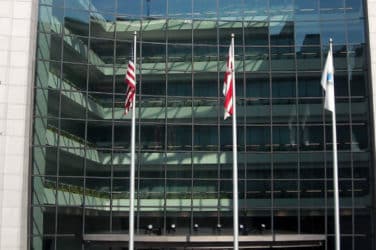As artificial intelligence, machine learning, and robotic process gather greater traction in the middle and back office, many firms are preparing for new regulatory regimes by throwing bodies at their problems.
Industry research firm Opimas estimates that of the $127 billion that the global capital markets will spend on IT this year, only $6 billion goes towards regulation and compliance.
The industry has seen compliance costs increase, but most of that investment comes from increases in headcounts, according to the authors of a recently published Opimas research report, entitled FinTech Spending and Innovation in the Capital Markets.
Octavio Marenzi, CEO of Opimas and one of the authors, initially estimated the industry’s investment into regtech would be greater given how soon regulations like MiFID II will go into effect.
“Financial institutions basically have reverted to manual processes for a lot of the regulatory compliance issues,” he said. “Because these regulations are new and sometimes not terribly well understood, it is sometimes difficult to actually automate the process.”
In an ideal world, regtech investments would provide infrastructures that are flexible enough to deal with new regulations as they appear as well as provide advantages beyond mere compliance, his fellow authors noted.
“In trade and communications surveillance, we have seen firms use the voice recordings gathered to perform sentiment analysis, and to use the transactional data required for trade reporting to perform more detailed execution analysis,” the authors wrote.
In the meantime, Opimas continues to see pre-trade, at-trade, and post-trade platforms receiving the lion’s share of IT investments, approximately $21.9 billion, $33.2 billion, and $42 billion respectively.
Order and execution management systems remain the greatest single investments made by the industry, $19 billion, Opimas estimates.
That may change as high-frequency trading has run its course, according to Marenzi.
“Squeezing the last microsecond advantage from trading systems remains a costly proposition,” he said. “Each additional percentage point in time results in a five-fold investment in technology. I wouldn’t be surprised if we see order and execution management systems space not grow by that much or, maybe, shrink a bit and start to favor other things.”






